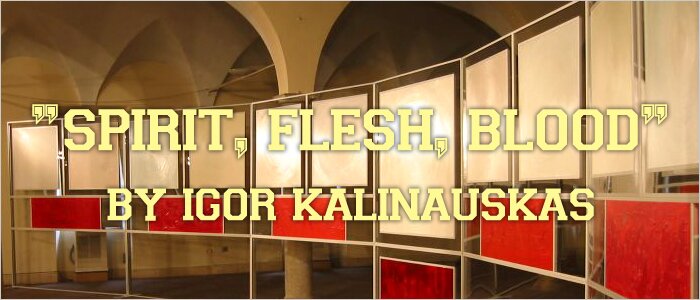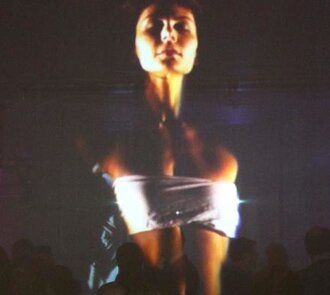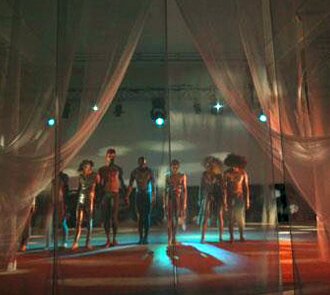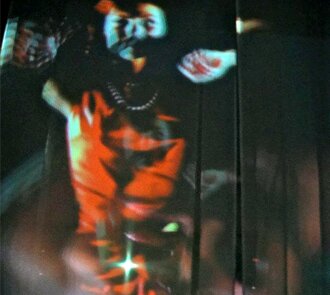theater & films
|
Few know, that the first education of Igor Kalinauskas - was not in art, or literature, or psychology, or even philosophy. No. It was in theater. Under the name of "Nikolaev" (stage surname), Igor Kalinauskas began his professional career as a theater director in Moscow. He graduated from a renown Boris Shchukin Theater Institute, staged over 26 theater plays and opened his own theater. From the very beginning of his career as a director, Kalinauskas sought for two goals: to establish his own theatre and to develop a unique system of training in acting technique. In 1970-1984 he worked as stage-director in Astrakhan’, Ordjonikidze, Minsk, Vilnius and numerous other cities, which were then in Soviet Union. Working with professional actors Nikolaev developed his own system, based on the latest studies in the field of psychology. It further revolutionized the leading theatre education techniques and developed Nikolaev's own method. The most prominent examples of Nikolaev’s performances are ‘Arena’ after I. Fridberg’s piece and ‘Phenomena’ after Grigoriy Gorin’s play, staged at the State Russian Dramatic Theatre, Vilnius. |
|
But in spite of all the opportunities and advantages of professional theatre, Nikolaev never forgot the dream of creating his own theatre, which resulted in the theatre studios astablished in Daugavpils, Kaluga, Vinius and Kiev. Such was the beginning and the formation of the "Nikolaev Theater". Performances ‘The Dragon’ after Shvart’s play, ‘Spanish amusements’ after works of Tirso de Molina, ‘Why don’t we live in Wittenberg’ after Shakespear’s ‘Hamlet’ and many others, were all produced and staged in these international branches of the Nikolaev Theater.
Igor Kalinauskas' own vision on the subject is very personal and poignant indeed:
"Psychology and art were two parallels which for me went together for so long, and they first met in the profession of a stage director. I deeply admire Pyotr Michalovich Yershov; he influenced me enormously - he wrote a wonderful book, named "Directing as a Practical Psychology". And actually all my theatrical activities, studios and so on, were just something medium between a psychological research laboratory and the theater as it is. That's why I used to be at times accused that my directorial creations were more like lectures than performances. I even played, as an actor, in a number of them.
I graduated from the Shchukin Theater Institute. That;s why I am a follower of Shchukin style, so to say a Vachtangov's director. It for itself. The more time passes, the more strongly I get convinced that I do fancy "theater of game", unpredictable, not the conventional one, but that of game. When I had my own theater in Kyiv, I put on the stage the performance which I loved greatly. It is named "Yurodiya"(madness) and based upon the novel "Crime and Punishment', as if seen with the eyes of the weak-minded. It was a really interesting experiment. The performance was as "Performance-player in four parts", and, of course, every part of it contained a prayer.
At that time I was very interested in vocational psychology. I managed to ascertain that Stanislavsky borrowed all his psycho-technique and all the exercises from the book "Raja Yoga' by Ramacharaka, an American who studied in India. That's why, at the time, when everything foreign was prohibited, in all theatrical institutions of higher education, the first-year boys and girls studied raja yoga being unaware of it and thinking that they were taught according to Stanislavsky system. Later I managed out to find out some other things. Thus, the system named "Fire Flower" was born. And when I legalized it, it became known as "Differentiated Functional State" - DFS.
I developed all those methods for the theater, but it turned out that our system can be more widely applied. I used it in the clinic, where I worked with people suffering from sickness after the Chernobyl disaster. I also applied it to my work with the highest rank sportsmen. And, in general, I've been practicing it myself through all my life."
Recently, Igor Kalinauskas found the continuation of his passion for the "theater of game", music and arts combined, in one medium alone - Film:
"As a stage director, I've put more then sixty plays on stage. And naturally, I have always worked and dealt with artists and musicians, enjoyed to call on them, to visit their studios, to smell the paints, hear new sounds, and to see the works of various genres and styles. But the only place, where I could find the marriage of all the elements which inspired me: art, theater, music - was Film. It is truly a universal medium, which conquered the modern world.
My first entrance to the world of the feature film, was with the script I wrote, titled - "Rabbits - Russian Style". It was about rabbits. About people-rabbits, used for psychological experiments by the system, as if in the lab. A film about people taking part in experiments, tests. I know this sphere very well, I worked as such a volunteer "rabbit" for about three years. It is a very strange world indeed.
I find it vital, to present to the viewer, not just a story, but something personal, something which I know, I feel - a part of me. I do this in my art, in my music, in my books, in my plays and I continue to do this in my Films as well.
My last film work is no different. It is titled "Spirit, Flesh, Blood" and is based on my installation "The Last Supper" and the philosophy, and the psychology of Faith overall. Where, the Man is not a "Servant" of God but rather his "Beloved Child", as it was stated by the Christ himself."
Igor Kalinauskas wrote a script for the feature film titled "Rabbits -Russian Style" (it combines elements of: fantasy, psychological thriller and black comedy) to be filmed and produced in Hollywood, USA. One of his latest creations as a co-director, co-script writer and co-story creator is the film titled "Spirit, Flesh, Blood" (semi documentary semi feature film) to be filmed by the PBS channel, USA. This film will feature elements of "The Last Supper" installation by Igor Kalinauskas, as well the philosophy and psychology of Faith itself.
Films by Igor Kalinauskas:
"Spirit, Flesh, Blood" (semi documentary semi feature film) to be filmed by the PBS channel, USA (co-producer, co-script writer, co-creative idea, co-director) (2014-until present)

"Rabbits - Russian Style" (it combines elements of: fantasy, psychological thriller and black comedy) to be filmed and produced in Hollywood, USA (script-writer, creative idea) (2006)

Theaters (president/director):
- 2006-until present - "Fire Voices", Theater of Vocal Improvisation, (president/director)
- 1992-1997 - "Fire Flower" Theater, drama theater, Kyiv, Ukraine, (president/director)
- 1990-1992 - "The 16th Madman' Theater, drama theater, Kyiv, Ukraine, (president/director)
- 1970-1984 - Vilnius Drama Theater, Astrakhan Drama Theater, Ordjonikidze Drama Theater, Minsk Drama Theater, (stage-director)
The most significant plays out of more then 60 directed by Igor Kalinauskas (Nikolaev):


- "To Love" (Lesia Ukrainka, "Vozliuby"), 2015, performed in Kiev, Odessa & Poltava
- E. Schwartz's “Dragon”
- I. Fridberg's “Arena”
- “Yurodiya” based upon the novel “Crime and Punishment” by F. Dostoevsky
- N. Ostrovskii's “Any Wise Man Has Enough Simplicity”
- “Spanish Games,” based upon the play by Tirso de Molina: “Don Gil of the Green Pants” and intermediaries of Cervantes
- G. Gorin's “Phenomena”
- G. Gelman's “Alone with Everyone”
- “Nowhere in Thirty Kingdoms,” based upon tales by Alexander Pushkin
- A. Dudar's “Choice”
- Ion Drutse's “By the Name of the Earth and the Sun”
- E. Schwartz's “Shadow”
- Arno's “Look Who is Here”
- “So, Why Are We Not in Wittenberg?” based on the tragedy “ Hamlet” by William Shakespeare
- G. Mamlin's “Hey, You, Hello!”
- “Robin Hood,” staged by I. Kalinauskas
- Paul Rummo's “Cinderella's Games”
- Lesya Ukrainka's “Love Thy Neighbor”
- E. Braginski's “Divorce after the Wedding”
- A. Gaidar's “Bumbarash”
- A.N. Arbuzov's “City at Dawn”
- “The Night before the Duel,” staged by I. Kalinauskas
- A.G. Khmelik's “Here Lived Timurovets Laptev”
- “Tales of A.S. Pushkin,” staged by I. Kalinauskas
- V.S. Rozov's “Abcde ...”
- “A Fairy Tale for All,” based on tales by Hans Christian Andersen, staged by I. Kalinauskas
- “The Song of Solomon,” staged by I. Kalinauskas




